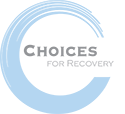When people are in the early months of recovery, they often experience a kind of mental fuzziness. They may struggle to think clearly as their mind adjusts to life without drugs and alcohol. This is also a time when emotions are heightened, and those who fail to cope with these challenges in early recovery are more likely to relapse. Yoga and mindfulness meditation can be a great tool with managing this thoughts, giving individuals more control over their emotions while also increasing their mental clarity.
How Yoga Helps
Yoga is an adjunct health practice, which means it is used in addition to other healing and addiction treatment methods. Yoga is defined as the use of physical postures to learn how to connect mind, body, and breath to increase self-awareness and focus attention inward. Because drug and alcohol addiction are a disease centered in the mind and the body, the inward focus of Yoga helps individuals grow and find themselves.
Many of the benefits everyone experiences from yoga are especially useful for drug and alcohol rehab, including:
- Increased energy
- Emotional healing
- Increased self-confidence
- Better exercise and eating habits
- Stress relief
- Lowered fatigue
- Pain relief
- Better sleep
- Using yoga to help with substance abuse lowers cravings, reduces withdrawal symptoms, helps prevent relapse, increases coping with triggers, and provides peace of mind and clarity to move through each day away from drugs and alcohol.
Mindfulness from Yoga
Mindfulness involves purposely paying attention to the present moment. It also involves being aware of thoughts, feelings, and emotions as they occur without being carried away by them. Mindfulness is a non-judgmental form of observation.
There is substantial interest in the benefits of mindfulness for people recovering from an addiction. Those who become sober need to face many challenges, and any tool that can help them do this is of great value. These are some of the benefits of mindfulness meditation for people in recovery:
- Early addiction recovery is like an emotional roller coaster. By practicing mindfulness, the individual will feel more in control and better able to deal with the highs and lows.
- Cravings usually continue to arise in recovery. Mindfulness allows the individual to observe such thoughts without being carried away by them. People learn that they are not always responsible for their thoughts, nor do they have to be a victim to them.
- People who practice mindfulness will be better able to spot the warning signs that they are losing their hold on their addiction. This way they will be able to avoid a relapse.
- This practice makes life in sobriety far more enjoyable. The individual is able to get pleasure from even the simplest things.
